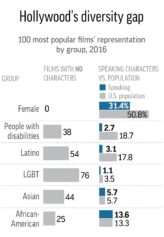Former University of Southern California football player Armond Armstead filed a suit against the school and other defendants on Thursday, claiming they played roles in his receiving improperly-administered painkilling injections that torpedoed his chances for an NFL career by causing him to have a heart attack.
The University Park Health Center and Dr. James Tibone, the Trojans’ team physician, and an unnamed pharmaceutical company were also named as defendants in a 38-page lawsuit that was filed in Los Angeles Superior Court.
The suit also claims that USC representatives concealed the injections from other physicians, while hindering Armstead’s attempt to transfer to another school for his senior season and to be drafted by an NFL team.
Damages sought are not specified, but Armstead’s attorney, Roger A. Dreyer, told the Los Angeles Times that a high NFL draft pick could earn tens of millions over the course of a career.
“The issue is about accountability,” Dreyer said, “not how much it’s worth.”
USC officials declined to comment on the lawsuit.
Armstead, a towering 6-foot-5, 298-pound defensive lineman, played for USC from 2008 to 2010. He sat out the 2011 season after the school refused to clear him to play following a brief hospitalization in the spring. Neither Armstead nor USC officials would disclose his condition.
Armstead visited other schools to explore the possibility of playing his final season elsewhere. He decided to turn pro, but was not chosen in the NFL draft nor signed as a free agent. He is currently playing for the Toronto Argonauts of the Canadian Football League.
The lawsuit says that in 2009 and 2010 Armstead improperly received injections of Toradol — a non-steroidal, anti-inflammatory drug also known as Ketorolac — and that the defendants “made it clear” to Armstead that “these injections were mandatory,” the suit says.
“This is not something where Armond said, ‘I want an injection,’ ” Dreyer said.
The suit says Armstead first began experiencing chest pains in early 2011 during workouts in preparation for spring practice. He went to University Park Health Center three times and was given injections twice.
The suit says Armstead was not informed he was receiving Toradol or any NSAIDs nor warned of the risks, “including the risk of heart attack or stroke.”
According to the suit, USC University Hospital determined on March 3 that Armstead had suffered “an acute anterior apical myocardial infarction,” and that the administrations of drugs were a “substantial factor” in causing the heart attack.


